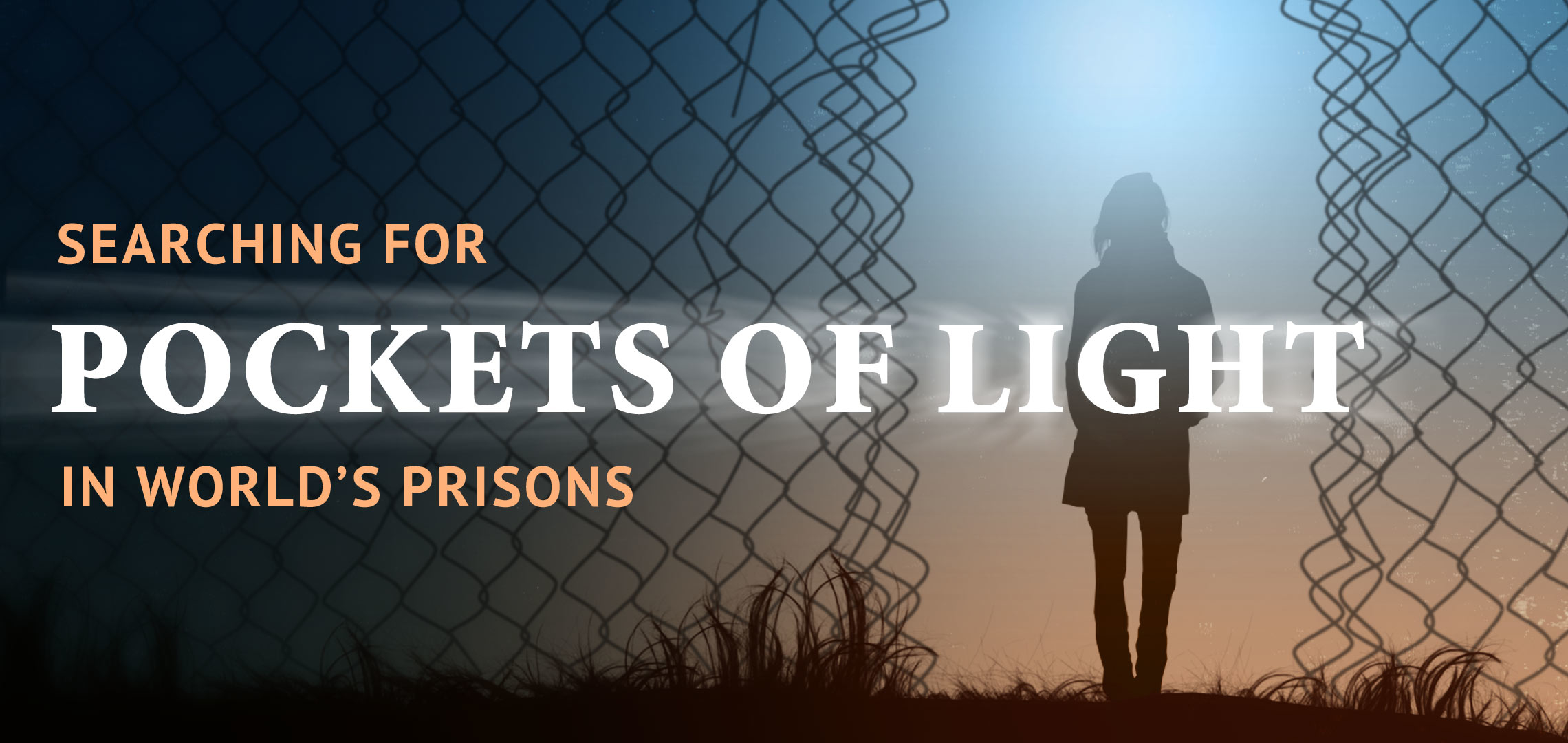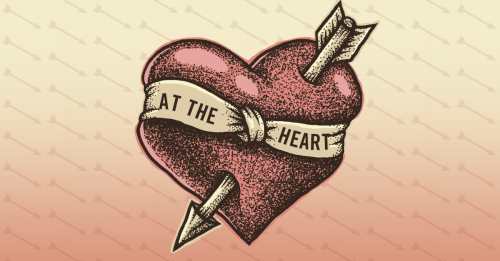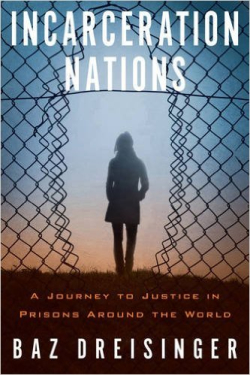Author Seeks Justice Beyond Punishment and Revenge

Every nation has a system set up in which they trap a percentage of their population—usually ethnic minorities and the economic underclass—in cages for years, decades, or life. Baz Dreisinger, in her research for her new book, Incarceration Nations: A Journey to Justice in Prisons Around the World, visited many of them. First, let’s be clear, she says: prisons should be abolished and replaced with a system that’s “grounded in repairing harm and making amends.” That said, she did find a few “pockets of light” that give her hope that prisons can be changed along the way toward abolishment.
Incarceration Nations is part of a new subgenre of books—that also includes Maya Schenwar’s Locked Down, Locked Out—in which authors search for paths toward a more humane justice system that does not decimate families and communities. Dreisinger’s own book, which will be released in February from Other Press, offers an important global perspective. Below the news, FTW talks to Dreisinger about her findings and how a smaller press gave her the freedom to tell her story.
First, the News

INDIEFAB Deadline: Friday is the last day to enter your book in the INDIEFAB Book of the Year Awards. Win cash prizes, serious recognition from booksellers and librarians, and, yes, a shiny sticker for your book. Learn more.

Best Short Stories Great short stories are intense, fast-moving, and pointed directly at the places where you feel most deeply—that’s why we love them. Here are the best from our Winter 2016 issue.
Featured Reviews of the Week
Corn Poll, by Zachary Michael Jack. A satirical novel in which a young reporter asks one ill-thought-out question that changes the trajectory of the race for the Republican presidential nomination. Reviewed by Jeff Fleischer.*
One Cup at a Time, by Debra-Lynn Bellefeuille. A rich cup of coffee and a good book make a great pair. They are brought together in this delightful collection of stories, trivia, and sayings that will warm the heart and soul. Reviewed by Beth VanHouten.
Witness, a project of the March of the Living. Integrates photographs and survivor testimonies into an exploration of the Holocaust in its historical place, serving as both a memorial to those lost and a charge to not let such events repeat themselves. Reviewed by Michelle Anne Schingler.
Unwritten: The Story of a Living System, by Lori L. Desautels and Michael McKnight. Existing narratives around education are demoralizing and have edited out foundational principles of how individuals learn. This book proposes a new tale with a resolution that benefits students. Reviewed by Kaavonia Hinton.
The Las Vegas Madam, by Jami Rodman. Sparing no detail, memoirist Jami Rodman, aka Haley Heston, opens the doors on the epicenter of the Sin City sex industry. Reviewed by Scott Neuffer.
Baz Dreisinger
It doesn’t sound like any single country has the perfect solution to a humane, effective prison system that truly focuses on rehabilitation. Who comes closest?

Baz Dreisinger
It’s certainly true that no one has the magic answer, especially as I don’t think prison works as a model for justice and safety overall, so any prison-based system—and that means, frankly, the whole world—is not going to meet my ultimate standards. I found pockets of light and progressivism and possibility in every country I visited, whether Uganda or Australia, Singapore or Thailand, just as I found atrocities across the globe that fired me up in excruciating ways.
Norway gets a lot of attention for being a kind of Utopian, socialist-oriented society as a whole, and particularly for its humane criminal justice system, with its famous open prisons. And while I resist the idea of a Utopia, I did find something in the Norwegian approach overall that was particularly inspiring. There is a communitarian spirit, a commitment to “us” over “me,” that bucks the capitalist tendencies of the rest of the world and produces justice in the true sense of the word; there is a valuing of reconciliation and restitution over and above a commitment to the revenge and punishment that are masked by American euphemisms like “corrections” and “rehabilitation.” This spirit pervades the justice system in Norway, and was echoed in every conversation I had there about justice. That of course does not mean it’s always being played out in the day-to-day of the Norwegian justice system, but it is central to the discourse.
A powerful part of your book is when you traveled to Rwanda and, amazingly, witnessed a feeling of forgiveness a generation after genocide. How did it achieve this culture of forgiveness and how could the United States learn from it?
Rwanda’s process of reconciliation and restitution as manifested in the post-genocide gaccaca courts was hardly perfect, we know this. But can any post-genocide justice system be perfect? What Rwanda did right was create a culture that values reconciliation and restitution over and above revenge and punishment. Notice I didn’t say “forgiveness”; forgiveness is not something a political entity can mandate—it’s a hugely complex personal process—but a government can indeed create avenues for reparations, which is a path to that feeling of forgiveness.
America can learn so much from this. Punishment and revenge are sewed into the very fabric of our culture such that questioning the ethics of these principles is almost unheard of—they are totally taken for granted. What if we promoted a justice system founded on altogether different principles: not an “eye for an eye” approach but one grounded in repairing harm and making amends for wrongdoing?
In Rwanda I also learned, by working with young genocide survivors who wanted to visit prisons as a show of reconciliation and peace, that we don’t give humanity enough credit: People are capable of incredible acts of forgiveness and growth, and revenge need not be the knee-jerk reaction to harm.
In your chapters on the brutal prison systems in Jamaica and Uganda, you describe art and music programs as “certainly well-meaning efforts but they’re also crumbs tossed at a system starved for radical overhaul.” Is this how you see current prison reform efforts in the United States?
I do think our system is starved for radical overhaul—I think this is true of prison overall: It’s a dated system of justice, an experiment that’s had its time. We need to radically rethink our approach to community safety and generate an altogether different paradigm, one that prevents crime, builds communities, does not criminalize particular groups of people, makes amends for a legacy of institutionalized racism that goes back to slavery and privileges repair over revenge.
At the same time, I am excited by the shift of consciousness that we’re witnessing in the United States right now, as reflected in the reform work happening across the country, led by powerful organizations and leaders—this is evidence that a sea change may very well be in the making. I am actually an optimist: I believe in our capacity to innovate and create. The current efforts are profound evidence of that capacity. I just hope, as all of us doing this work hope, that it’s not just tinkering with the system but the start of overhauling it.
How was your experience with Other Press? What’s the advantage in working with an indie publisher?
Other Press has been marvelous to work with. The press understood the concept of the book from the get-go, which was tremendous as this book is an unusual one, both in terms of its hybrid structure—its first-person odyssey, the narrative story of a journey, but it’s also grounded in academic and on-the-ground research—and its subject matter, which is sometimes deemed unpopular, too grim. Other Press saw the value of the global approach, as well, and the size of the press meant I benefited from close attention, from the editing process right down to the PR efforts.
You funded your travels for this book by freelancing as a travel writer. I’m sure many writers would love to do something similar. How did that work out for you?
I fell into travel writing accidentally, as I was writing about global culture and especially music, and editors began approaching me about doing travel, as well; it was a natural fit. What’s valuable about travel writing is the avenue it provides for entry into a given society—it’s fundamentally about the quest for understanding the fabric of a culture as manifested in all aspects of it, from music to food and right on down to the heavier stuff, like its justice system and social structures. These are all interconnected.
You’ve also worked on documentaries that touched on hip-hop culture. Favorite artist?
Slick Rick! I love storytelling. He’s the master.
